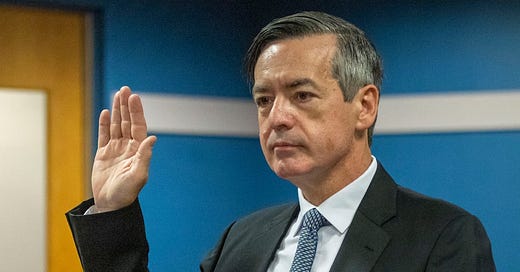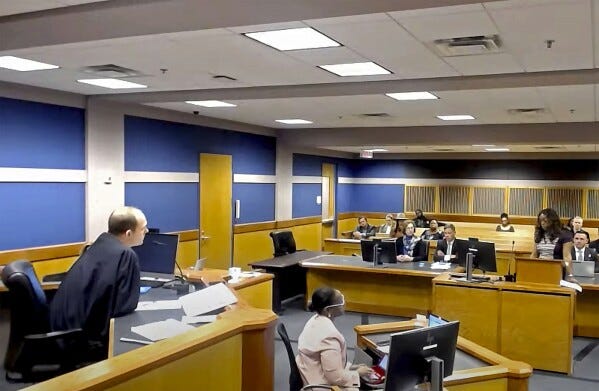Georgia Election-Interference Case— Another Trump Co-defendant Pleads Guilty
The Ripple Effect: Kenneth Chesebro's Guilty Plea and its Implications for Donald Trump

Introduction
The American political landscape has become increasingly complex with Kenneth Chesebro, a former lawyer for Donald Trump's U.S. Presidential election campaign, pleading guilty on Friday (October 20, 2023) to conspiracy charges related to efforts to overturn the 2020 election results in Georgia. This development, coming just a day after Sidney Powell, another former Trump campaign lawyer, entered a similar plea, has significant implications for Trump and his legal standing1.
A Deal to Avoid Jail Time
Kenneth Chesebro's plea is strategic; it not only helps him avoid jail time but also allows him to continue practising law, as the charges aren't considered ones of "moral turpitude." Chesebro agreed to a litany of conditions, including a three to five-year probation period, a fine, and an agreement to testify against any other co-defendants in the case.
The Strategy Behind the Plea
By taking the plea deal, Chesebro potentially weakens the defence for other individuals implicated in the case, including Trump. Fulton County District Attorney Fani T. Willis, prosecuting the case, gains a significant advantage, as avoiding a trial prevents the early disclosure of evidence.
The Domino Effect: Implications for Trump
Legal Consequences
The potential for incriminating testimony from not just Chesebro but also from Sidney Powell and Scott Hall, who have similarly pleaded guilty, could have dire consequences for Donald Trump. It complicates the former President's legal standing, with the possibility of a more strenuous defence and the increased likelihood of criminal charges being laid against him.
Political Repercussions
On the other hand, Trump has faced numerous legal challenges before, only to emerge unscathed in the eyes of his supporters. The plea could be spun as another 'witch hunt,' thereby rallying his base.
Questions About Credibility
It's crucial to consider the credibility of the co-defendants who have agreed to testify. Chesebro's legal team has asserted that he is not the 'architect' of any plan to overturn democracy. Whether his testimony would be credible enough to implicate Trump seriously is an open question.
The Defense’s Standpoint
Lawyers for Trump and other defendants could argue that these plea deals are desperate measures by the prosecution, and that those pleading guilty are doing so under duress or for their own benefit, rather than implicating a factual truth.
Conclusion: A Balancing Act
The guilty plea from Kenneth Chesebro adds another layer of complexity to Donald Trump’s already labyrinthine legal woes. While it undoubtedly places Trump in a precarious position, it also offers another rallying point for his ardent supporters. What remains unambiguous is that Chesebro's plea has the potential to significantly influence Trump’s legal future, for better or for worse. The unfolding of this case will likely serve as a litmus test for the strength of legal institutions against political influence in the United States.
Sidney Powell's Guilty Plea: How Damaging for Trump, Potentially?
Sidney Powell's Guilty Plea: What Could She Reveal About Trump? Sidney Powell, once a legal representative for former U.S. President Donald Trump, recently pleaded guilty to six misdemeanour counts r…





